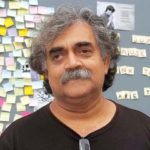Do you see Bilawal Bhutto-Zardari as a viable political leader/change-maker?
By Newsline Admin | Opinion | Published 6 years ago
Hasan Mujtaba is a poet and journalist-in-exile. He has worked at Newsline as a reporter.
 In 2006, after his release from prison, Asif Ali Zardari arrived in New York, his son Bilawal in tow. Father and son took up residence in a five-star hotel, which Zardari would proceed to make his home by renting an entire floor of the establishment. During his stay in New York, Zardari would sarcastically ask people close to him whether there was any way in which he could make his son a man. “I was in jail, his mother made him feminine,” he is reported to have said to his friends. “I want to make him a man again.”
In 2006, after his release from prison, Asif Ali Zardari arrived in New York, his son Bilawal in tow. Father and son took up residence in a five-star hotel, which Zardari would proceed to make his home by renting an entire floor of the establishment. During his stay in New York, Zardari would sarcastically ask people close to him whether there was any way in which he could make his son a man. “I was in jail, his mother made him feminine,” he is reported to have said to his friends. “I want to make him a man again.”
One of his friends recalls how he would say things about his wife, Benazir Bhutto, and son. He remembers an evening when he was sitting with Zardari in a famous Italian restaurant on the upper East Side of New York, when Bilawal walked in. He told his father he was going out with friends in the evening. Zardari pulled a thick wad of one hundred dollar bills out of his pocket and put it on the table in front of Bilawal. “Take as much as you want,” he told his son. Bilawal picked up a hundred dollar bill and left. Zardari turned to the friend and said, “Did you see how he happens to be a cheapskate like his mother? I offered him thousands of dollars and he just took a hundred!”
Benazir Bhutto had other plans for her husband and children when she was preparing to return to Pakistan from self-exile, after striking a deal with former military dictator General (R) Pervez Musharraf. Masood Haider, my journalist friend and New York-based Dawn correspondent, had reported in his newspaper his telephonic conversation with Benazir at the time: “I am going to Pakistan,” she said. “Bilawal will go to London for further studies; Asif will stay in Dubai. He will look after the children and his business.” But Pakistan’s blood-drenched history had something else in store for her and the people of Pakistan. After her assassination, through an alleged ‘will’ that emerged from nowhere, Bilawal was selected as Chairperson of his mother’s party and renamed Bilawal Bhutto-Zardari, while all power was vested in the hands of the father. The rest is history.
“He hasn’t grown up yet,” remarked Zardari at the time when tension had developed between the father and the son, around five years ago. Bilawal has, undoubtedly, come of age now. However, it is widely surmised that he will metamorphosise into a statesman only if and when he steps out of his father’s shadow. In 2017, Zardari registered himself with the Election Commission of Pakistan (ECP) as head of the Pakistan Peoples’ Party Parliamentarians (PPPP) and returned to the National Assembly by winning a seat from Nawabshah. Bilawal followed suit, gaining a seat in the NA in the 2018 election. But, sound and fury aside, he has yet to act independently. From being passively tight-lipped on matters of gross misrule and corruption of biblical proportions in Sindh, to PPP’s buying of votes in the election to the chairmanship of the Senate, to an abysmal showing in other provinces, including Punjab, Bilawal and his party’s performance thus far has been disappointing, to say the least.
He has, however, improved his Urdu oratory, the recitation of parroted poetry, tailored political rhetoric, and sloganeering – all of which are dependent on the nature of the relationship between his father and Pakistan’s military establishment.
Sofyan Sultan is the owner of Soch, an online news page.
 No, I do not see Bilawal Bhutto-Zardari as a viable political leader or changemaker. It is unlikely for someone whose political power is based on a network of patronage and crime to deliver meaningful or systemic change.
No, I do not see Bilawal Bhutto-Zardari as a viable political leader or changemaker. It is unlikely for someone whose political power is based on a network of patronage and crime to deliver meaningful or systemic change.
Analysing the question further: a forward slash is often in place of the word “or,” but the terms “[viable] political leader” and “[viable] changemaker” are not synonymic and in our political system may, in fact, be opposites. In fact, I don’t think we should be asking this question at all. And I believe our obsession with Bilawal tells us a lot more about us than about him.
Born to rule, the son of a kleptocrat and martyr, he embodies the hopes and aspirations of millions and the hatred and disgust of an equal or greater number of millions. And while it is difficult to write off the possibility that a 30-year-old in close proximity to power may one day, perhaps in the distant future, ascend, it is difficult to imagine a scenario where Bilawal would both ascend to power and be in a position to make meangingful change. In fact, I would argue that the higher the likelihood that Bilawal becomes PM in the near future, the less the probability that he will be able to do any good with the position.
Conversely, the longer he is not PM the less likely it will be for him to become PM in the future, but as his powers dissipate, it may free him to pursue a more progressive political agenda as an ordinary member of parliament. So perhaps, there are are two plausible but mutually exclusive futures for Bilawal – one as a leader and the other as a changemaker, but not both together.
Captive to his mother’s legacy and his father’s greed, I cannot help but feel sorry for a boy whose first and only job has been Chairman of the Pakistan Peoples’ Party. He should have had the opportunity to work at McKinsey for a few years in New York, practice law in London perhaps, or maybe even work with the good folks at Thardeep and see for himself the plight of the people whose saviour he now claims to be, unmitigated by the tinted glass of an SUV, or bullet-proof glass on stage.
Unfortunately, Bilawal will never be able to live any of those lives, both to his loss and the loss of a country that needs desperately its most priviliged to give back without fearing the loss of their 10 per cent. And questions like these aren’t helping.
Mehmal Sarfraz is a journalist based in Lahore.
 Yes, I do. I think for someone his age, Bilawal Bhutto-Zardari has emerged as a mature politician and leader. From his election campaign in 2018 to the bold stances he has taken on the floor of the House, Bilawal has proved his leadership qualities. From talking about banned outfits, to minority rights, to human rights abuses in Pakistan, to the Pashtun Tahaffuz Movement (PTM), he is the only politician who has been consistent and vocal when it comes to sensitive issues. He makes many older politicians look like pygmies in comparison.
Yes, I do. I think for someone his age, Bilawal Bhutto-Zardari has emerged as a mature politician and leader. From his election campaign in 2018 to the bold stances he has taken on the floor of the House, Bilawal has proved his leadership qualities. From talking about banned outfits, to minority rights, to human rights abuses in Pakistan, to the Pashtun Tahaffuz Movement (PTM), he is the only politician who has been consistent and vocal when it comes to sensitive issues. He makes many older politicians look like pygmies in comparison.
We have also seen how the PTI government has responded to his criticism — with misogyny and below-the-belt jibes. It shows that Bilawal’s comments have irked the government and other powerful quarters the most. He talks rationally and his sharp wit is something that few others can match.
I do, however, feel that there is the baggage of PPP’s misgovernance and alleged corruption that Bilawal has inherited and will need to address. Perhaps he does need to acknowledge and resolve in real terms the glaring missteps by the Sindh government as far as its performance is concerned. This is important because this is — for now — his real constituency and the Sindh government’s performance is wanting in many areas.
He also needs to connect with the youth more, and that can be done with more public interactions. We know that security is a huge concern for him, but his voters and supporters need to see more of him in person.
I also feel that he needs to focus more on Punjab in the next few years. If the PPP continues to ignore Punjab, it will be very difficult for the party to form a government. The PPP is a progressive party, but over the years it has ceded space to right-wing parties in Punjab. It needs to reclaim its space in Punjab.
When it comes to issues that are considered taboo and/or too sensitive, we have seen that the PPP takes a stand despite the backlash. Bilawal does not shy away from these subjects like most others and does not mince his words. He is indeed as brave as his late mother, Benazir Bhutto.
He has all the qualities of a leader. Right now it seems as if he is the real Opposition leader. He has the aggression of his grandfather, Zulfikar Ali Bhutto, the courage of his mother and the wit of his father. He seems clearheaded and down to earth. But as I said earlier, he needs to connect with his voter base across the country and especially Punjab. His grandfather and mother were national leaders. He, too, has emerged as one. Age is also on his side.
Aasim Zafar Khan is a former journalist now running a digital content firm in Lahore.
 The Naya Pakistan experiment has failed. And although the failure of this experiment was something that had been expected by a section of the Pakistani intelligensia, more and more people are now waking up to the results.
The Naya Pakistan experiment has failed. And although the failure of this experiment was something that had been expected by a section of the Pakistani intelligensia, more and more people are now waking up to the results.
But unlike scientists in a laboratory who can just restart the experiment, with different chemicals, instruments and what not, and therefore get a different result, running this country is playing with the lives of over 200 million people, and decisions taken, and courses set, are quite hard to change.
Pakistan’s political landscape has always had two players: the civilians and the khakis. Our history is largely dotted with a tussle between the two, with the latter generally coming out on top. However, the former has always been knocking on the door. Unfortunately, with the advent of Naya Pakistan, a new normal has been set. The real question to ask is, whether any leader, be it Bilawal Bhutto-Zardari (BBZ), Hamza Shahbaz, or anyone else, can reset these new terms of engagement.
What exactly are these terms of engagement? That the khakis call the shots? That has been going on for decades. But the spread has now reached epic proportions. Previously, it used to be just foreign policy, defence budgets and so on. Today, they are engineering entire elections, handpicking people for parliament, and calling for change within the cabinet whenever they deem necessary.
The recent inhouse cabinet change is frightening. It reeks of that all-familiar smell one finds in cantonments and corps commanders’ meetings. And the people who have been brought in, well, their history speaks for themselves. (read: Brigadier Ijaz Shah).
Given all this, the question of this piece, can BBZ be a viable political leader/changemaker, takes on a new meaning. The first question to ask is this: given a chance, can BBZ undo the new normal?
Most of the people I have spoken to, have no relationship with BBZ. And while he may have brushed up his Urdu skills, he continues to sound ‘un-Pakistani.’ Khan, on the hand, and at the very least, has that going for him.
Bilawal’s liberal views are a breath of fresh air in an ever-increasing toxic environment. But as we all know too well, words are words. Given an opportunity, would the PPP under him, take the hard decisions needed to change Pakistan’s course, or would he and the party resort to what they know so well: politics of continuation and survival?
Secondly, there is the shadow of his father, Asif Ali Zardari, hanging over him. So the short answer is: no.
Hammal Aslam teaches International Relations at BUITEMS.
 As a third generation dynast of Pakistan’s most prominent political family, Bilawal Bhutto-Zardari has had more political resources available to him than anyone else to gain political ascendance. To be fair, he has earned some of it. Let’s do a quick stock-taking.
As a third generation dynast of Pakistan’s most prominent political family, Bilawal Bhutto-Zardari has had more political resources available to him than anyone else to gain political ascendance. To be fair, he has earned some of it. Let’s do a quick stock-taking.
From the time that Bilawal became actively involved in the political arena – both at the discursive and organisational levels – his presence has been hard to ignore. During and after the 2018 general elections, Bilawal has time and again shown that not only does he have the ability to rise above the ever-increasing mudslinging of Pakistan’s political arena, but also that he has the acumen and courage to call attention to the key challenges that Pakistan faces. I think he has arrived. From his maiden powerful speech in the National Assembly, wherein he presented a moving case for the supremacy of parliament, to his bold defence of the 18th Amendment at Garhi Khuda Baksh, he has been striking popular anti-establishment notes.
At a time when anti-status quo voices are emerging from different quarters of the country, his approach will help him win allies from smaller provinces in the long run, if not new followers rightaway, and also possibly restore some of the Pakistan People’s Party’s (PPP’s) damaged reputation. Moreover, his constant call to action against jihadi militants and fundamentalism in general, is creating, among the public, a liking for him. After all, the Pakistani state has not been able to stop terror attacks completely. Criticising jihadi groups and their backers is not a risk-free business. For a Bhutto scion, the dangers are manifold; thus Bilawal demonstrates at least one key criteria of involvement in Pakistan’s politics: nerve.
Given that these features indicate a positive take-off for Bilawal Bhutto as a future leader, there is a limit to changes that individuals can effect. His real leadership test, in my opinion, lies in whether he would be able to transcend the political zeitgeist – by breaking the cycle of the exchange of favours between electables.
Nonetheless, Bilawal’s choices, just like those of other leaders of dynastic political parties in the developing world, are limited, because in these organisations, as researchers have noted, favours (such as ticket and office nominations/allocations) serve as a key instrument for the maintenance of internal party cohesion and growth, by discouraging defections, suppressing challenges to party leaders, and wooing the disgruntled electables from the opposition. Given the organisational weakness of the PPP, it is highly likely that the party will continue to rely on power figures for electoral success. The institutional environment in which personalistic politics thrives is not going away any time soon.
On the other end of the spectrum lies the slow and mundane work of ‘party building.’ Only time will tell if Bilawal will take this lacklustre route, and help bring in real change by working towards improving the quality of democracy in Pakistan in the long term. The key to this lies in his ability to capitalise on the youth bulge in the country.


